In the circuit shown if figure, is potentiometer wire long. The circuit is connected as shown. With switches and open, a balance point is found at . After switched has remaind closed for some time, it is found that contact at must be moved towards to maintain a balance. which of the following in most likely reason for this ?
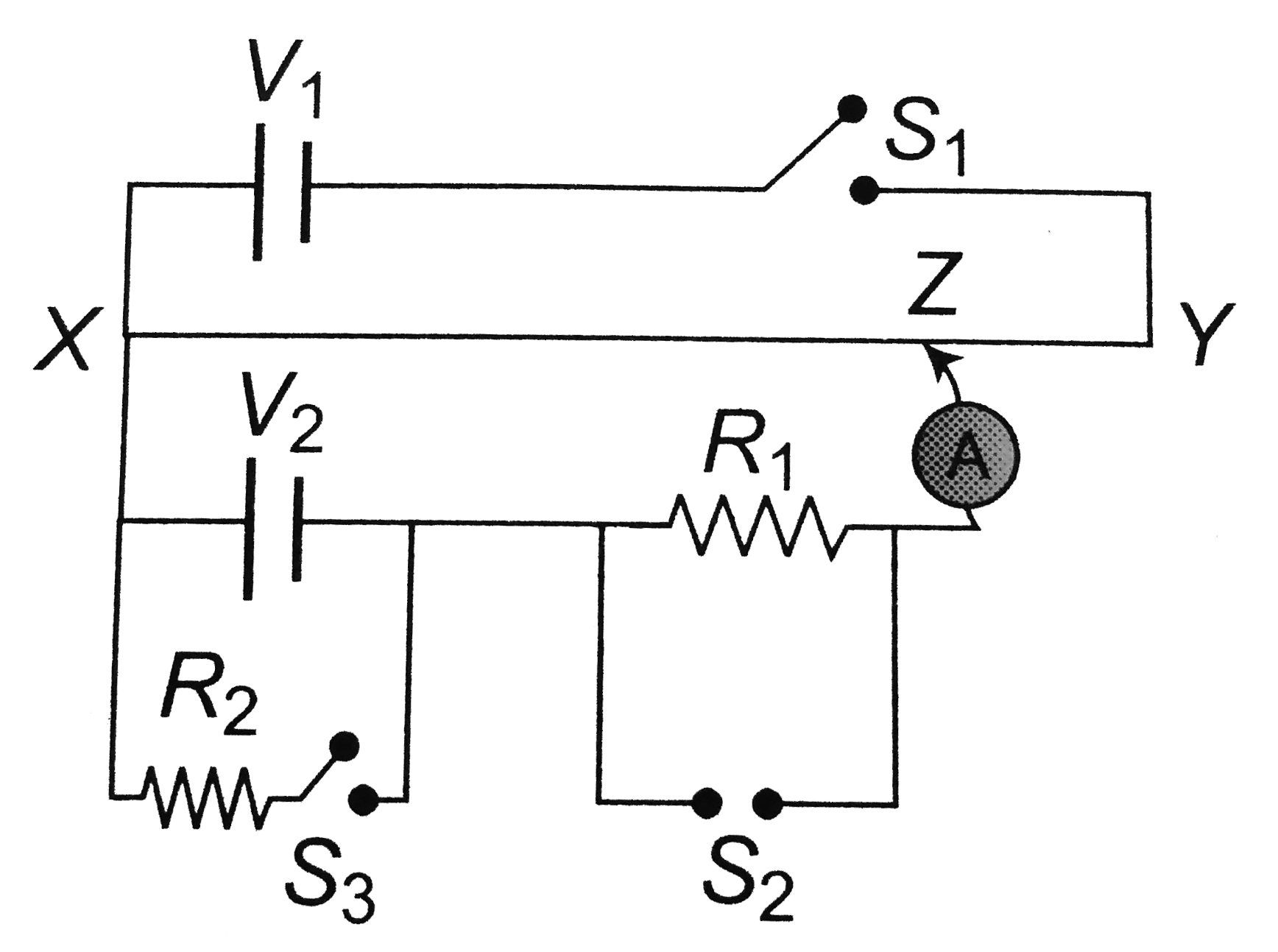
The cell is running down
The cell is running down.
The wire XZ is getting warm and its resistance is increasing.
The resistor is getting warm and increasing in value.
The correct Answer is:A
a. If decreases, the potential difference across xz will decrease. So to have potential difference, i.e. , across xz, length xz has to be increased or z should be moved toward y.
b. is incorrect because for this , z should have been moved toward x.
c. will be incorrect because xz can get warm up if current through it increases which is not possible .
d. is incorrect because there is no current in .
Similar Questions
In the circuit shown in figure-3.238, find the current in 6Ω resistance just after closing the switch S.
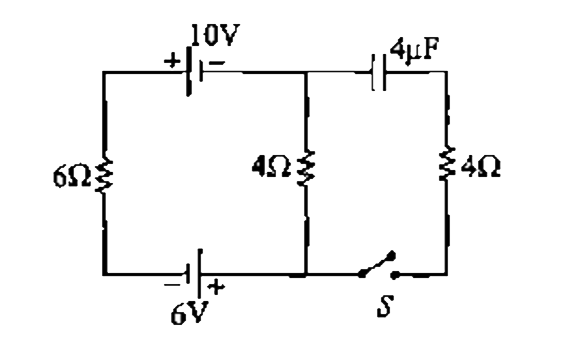
View SolutionConsider the potentiometer circuit for determining the internal resistance of a cell. When switch S is open, the balance point is found to be at 75cm os the wire. When switch S is closed and value of R is 4Ω, the balance points shifts to 60cm. find the internal resistance of cell.
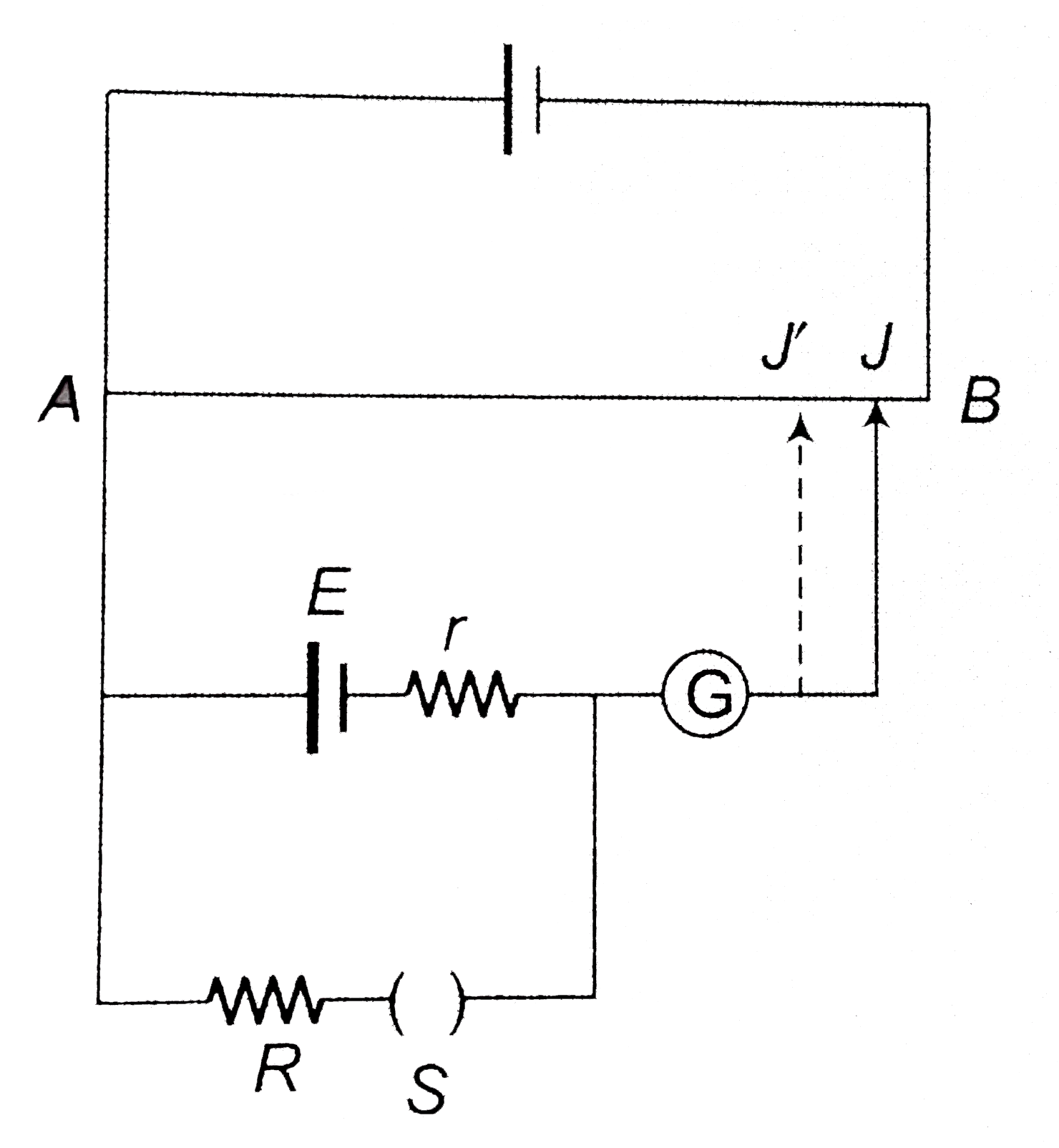 .
.
View Solution
Knowledge Check
In the circuit shown in the figure The steady state currents i1andi2 in the coils after the switch S is closed are
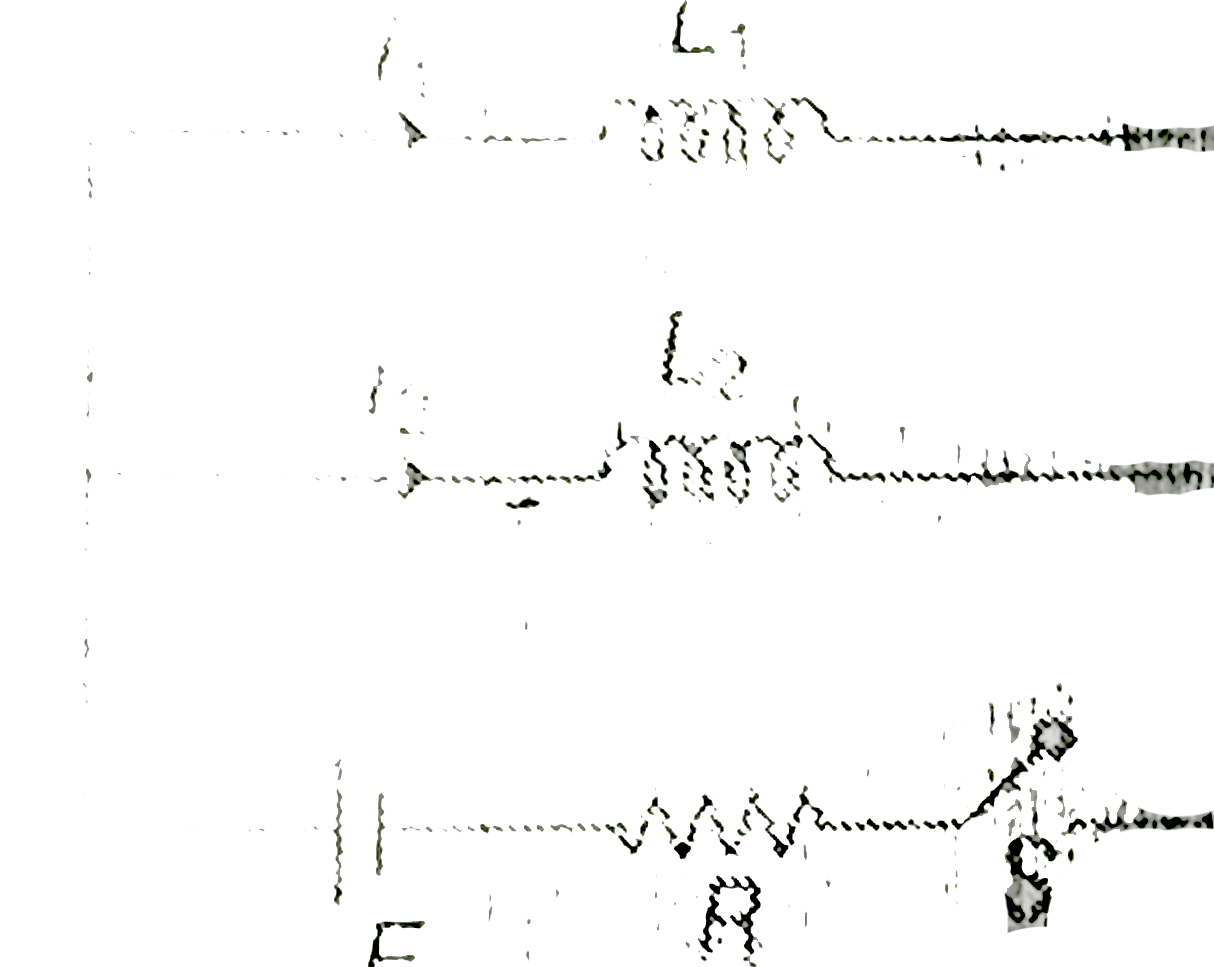 Ai1=EL2R(L1+L2)Bi1=EL1R(L1+L2)Ci2=EL2R(L1+L2)Di2=E√L1L2RL2
Ai1=EL2R(L1+L2)Bi1=EL1R(L1+L2)Ci2=EL2R(L1+L2)Di2=E√L1L2RL2In the circuit shown in the figure, if switches S1 and S2 have been closed for a long time, then charge on the capacitor.
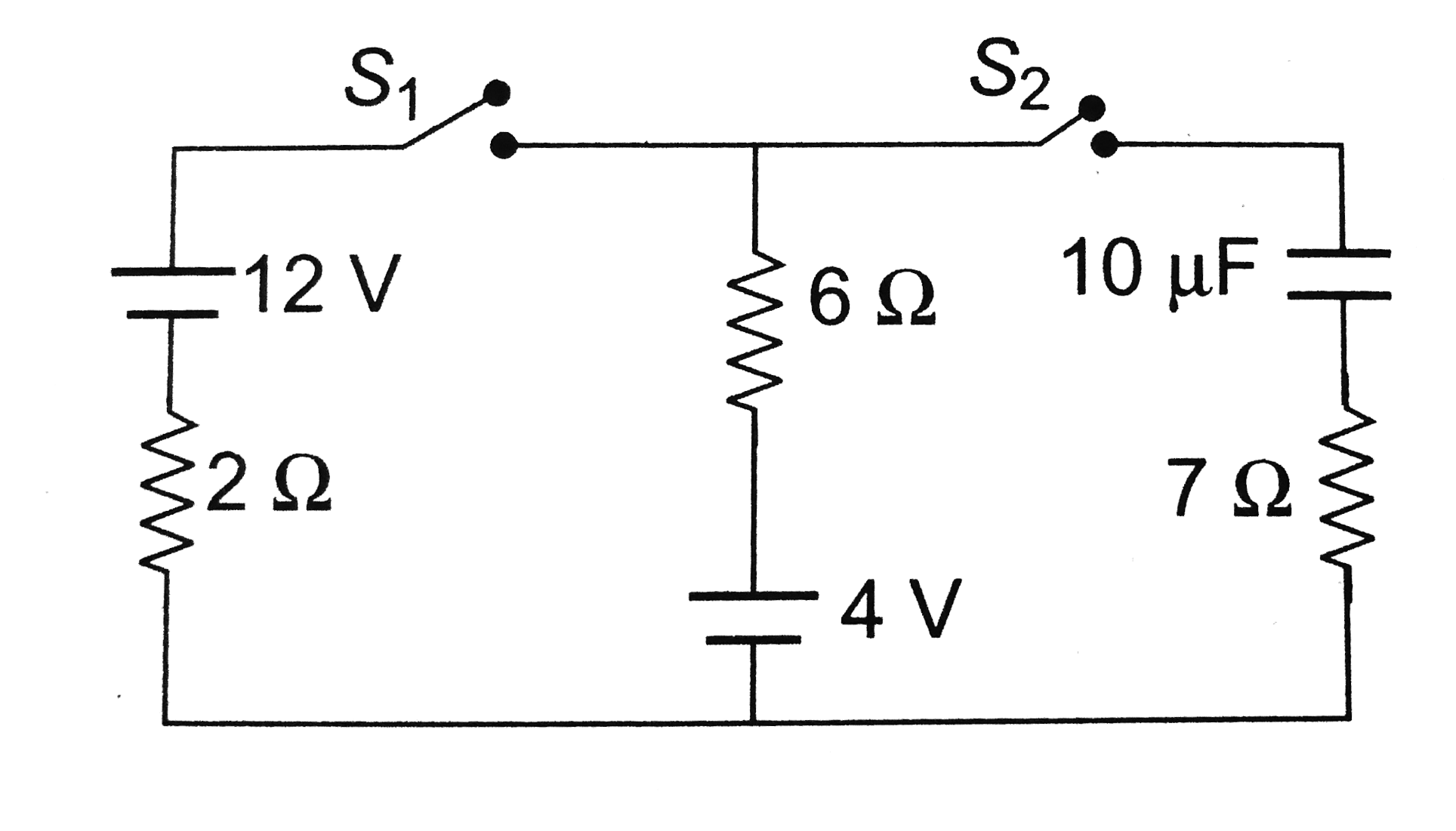 Ais 100μCBincreases to 200μC if one third of the gap of the capacitor's plates is filled with a dielectric (K=2) of same areaCboth (a) and (b) aboveDcharge on the capacitor remains unchanged if one third of the gap of the capacitor's plates is filled with a dielectric (K=2) of same area.
Ais 100μCBincreases to 200μC if one third of the gap of the capacitor's plates is filled with a dielectric (K=2) of same areaCboth (a) and (b) aboveDcharge on the capacitor remains unchanged if one third of the gap of the capacitor's plates is filled with a dielectric (K=2) of same area.Consider the circuit shown in figure. The current through the battery a long time after the switch S is closed is:
 AER1BER2CER1+R2DE(R1+R2)(R1R2)
AER1BER2CER1+R2DE(R1+R2)(R1R2)
In the circuit diagram shown in the figure the switches S1 and S2 are closed at time t=0.After time t=(0.1)ln2sec, switch S2 is opened.The current in the circuit at time t=0.2n2sec is equal to x32amp.Find out value of x.
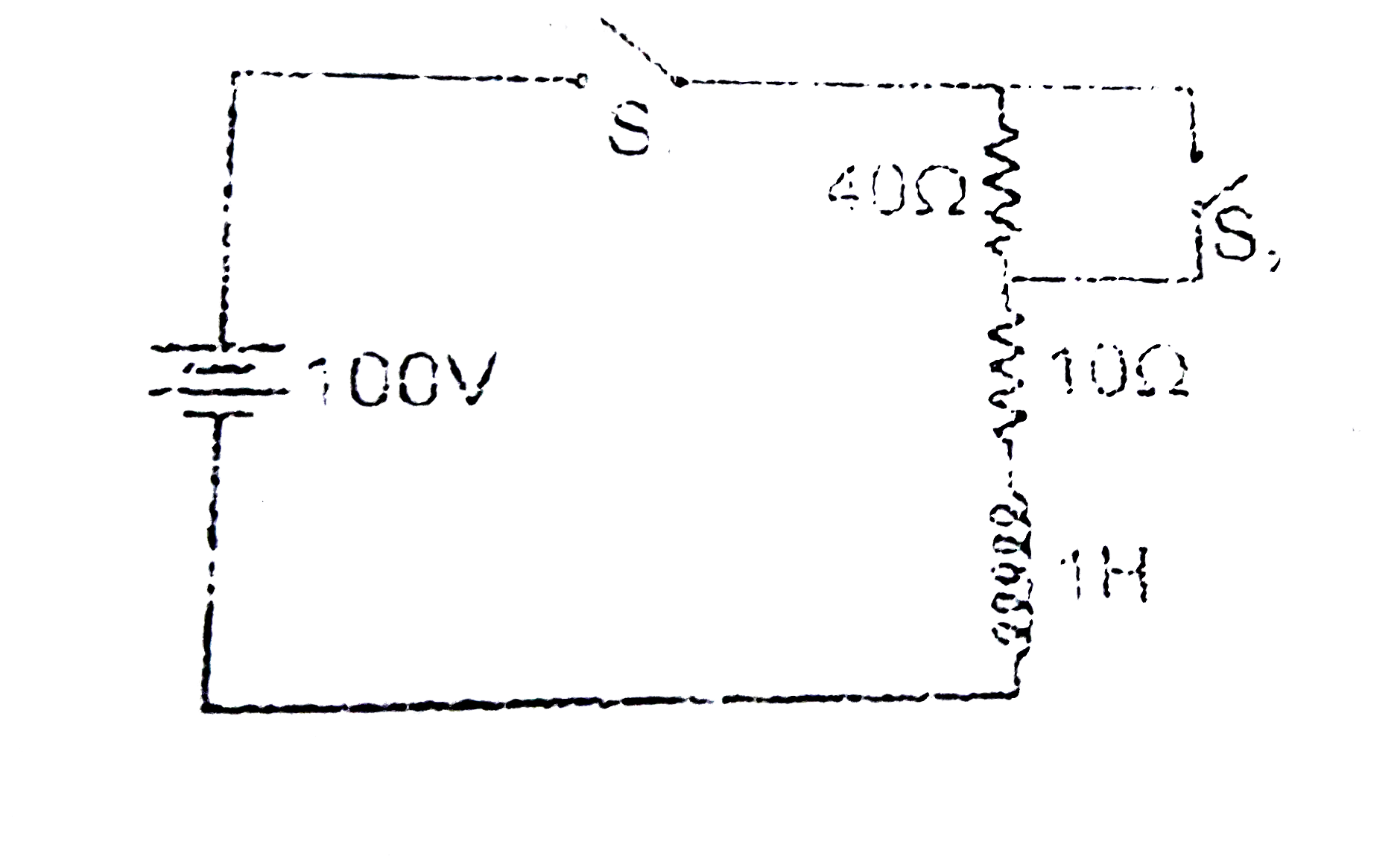
View SolutionA circuit is connected as shown in the figure with the switch S open. When the switch is closed, the total amount of charge that flows from Y to X is
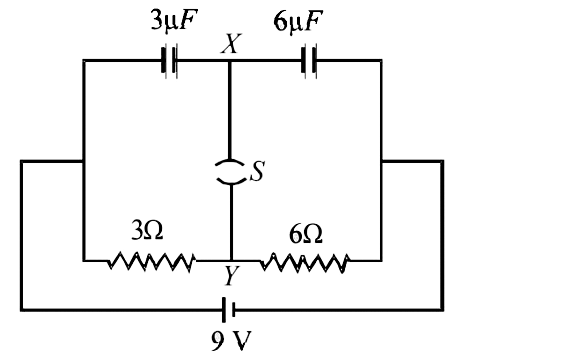 .
.
View SolutionIn the circuit shown in figure switch S is closed at time t=0. The charge which passes through the battery in one time constant is
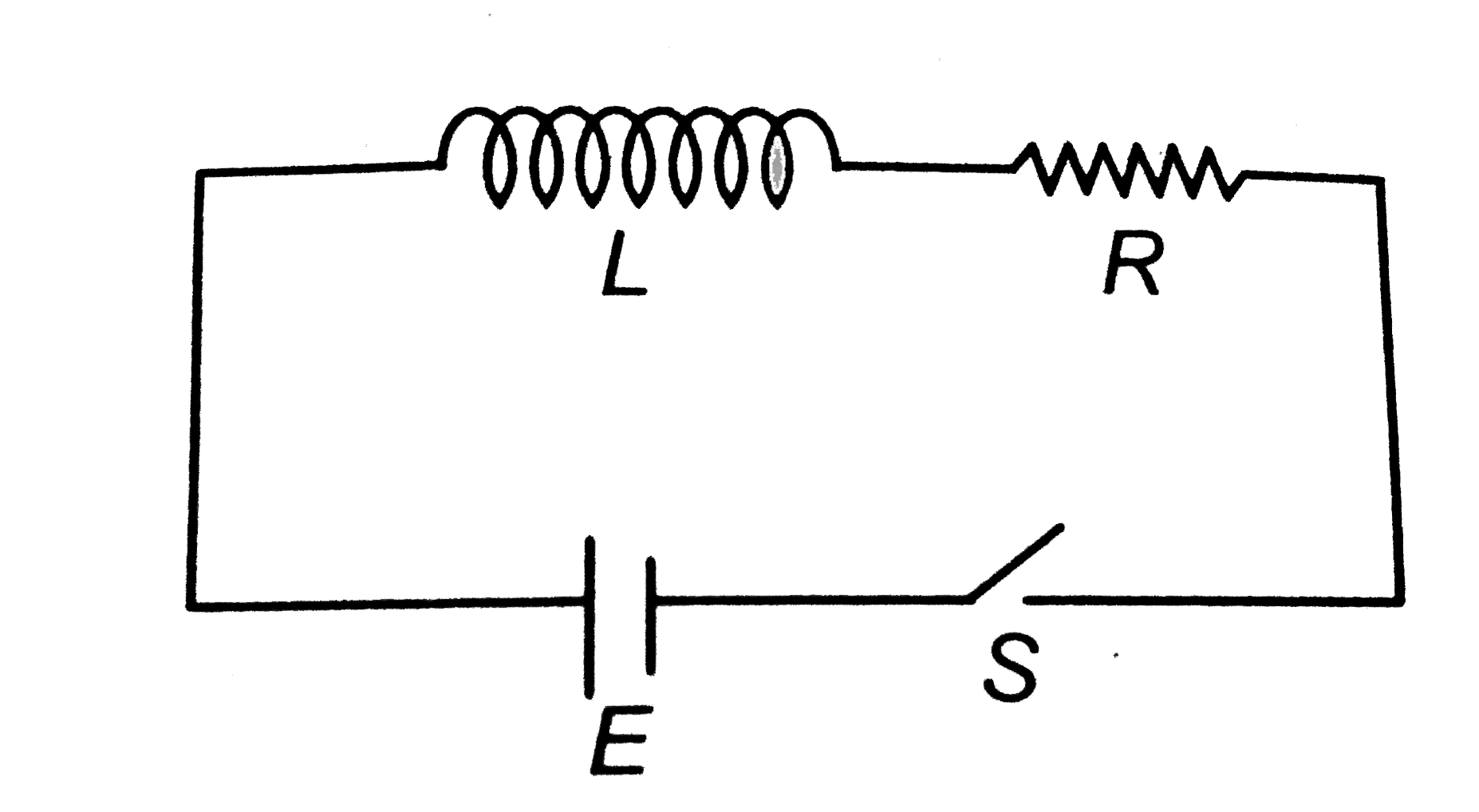
View SolutionIn the circuit shown in figure switch S is closed at time t=0
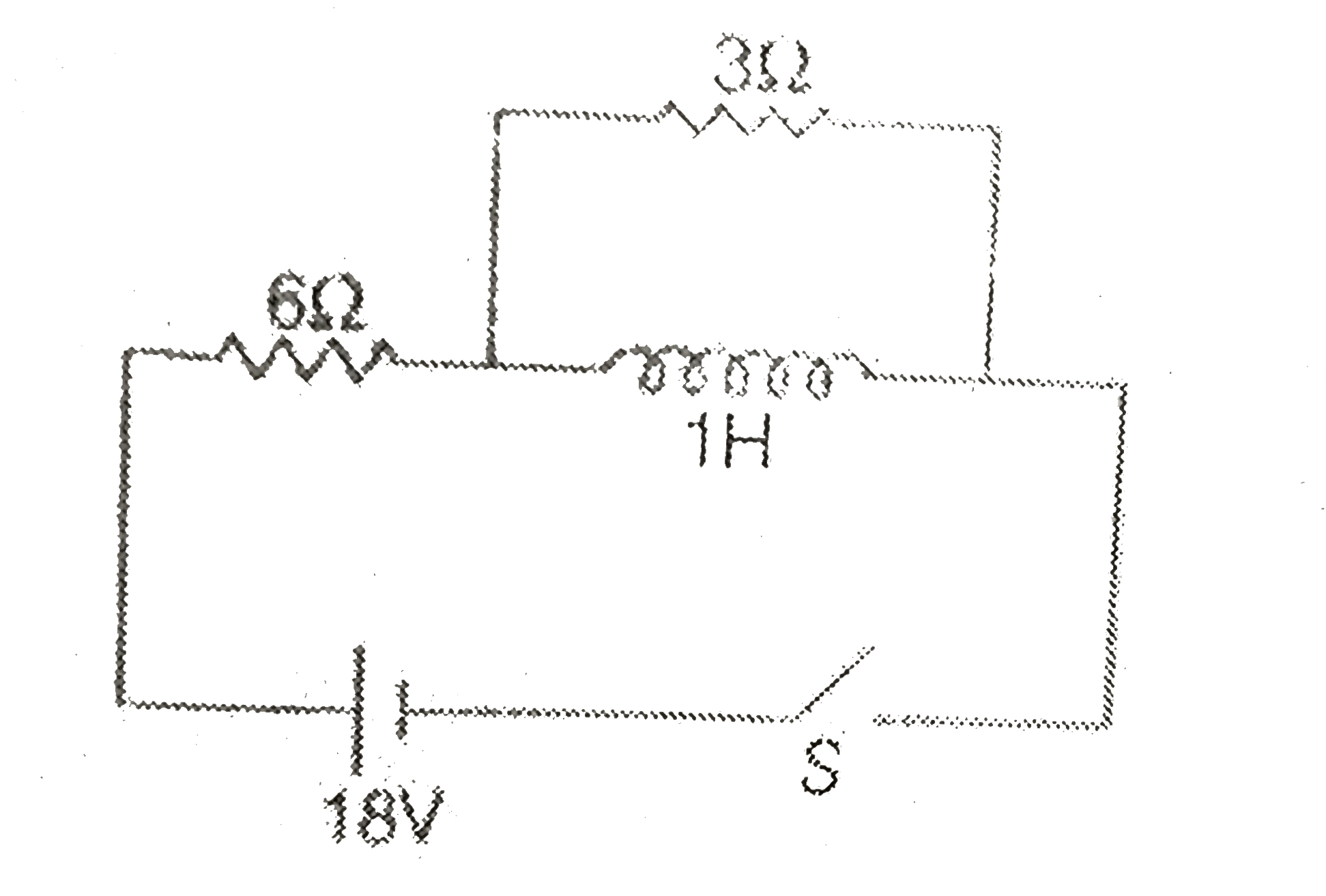
Potential difference across 3Ω resistance at time t is given by
View SolutionIn the circuit shown in figure switch S is closed at time t=0, which statement is true after one time constant of L-R circuit?
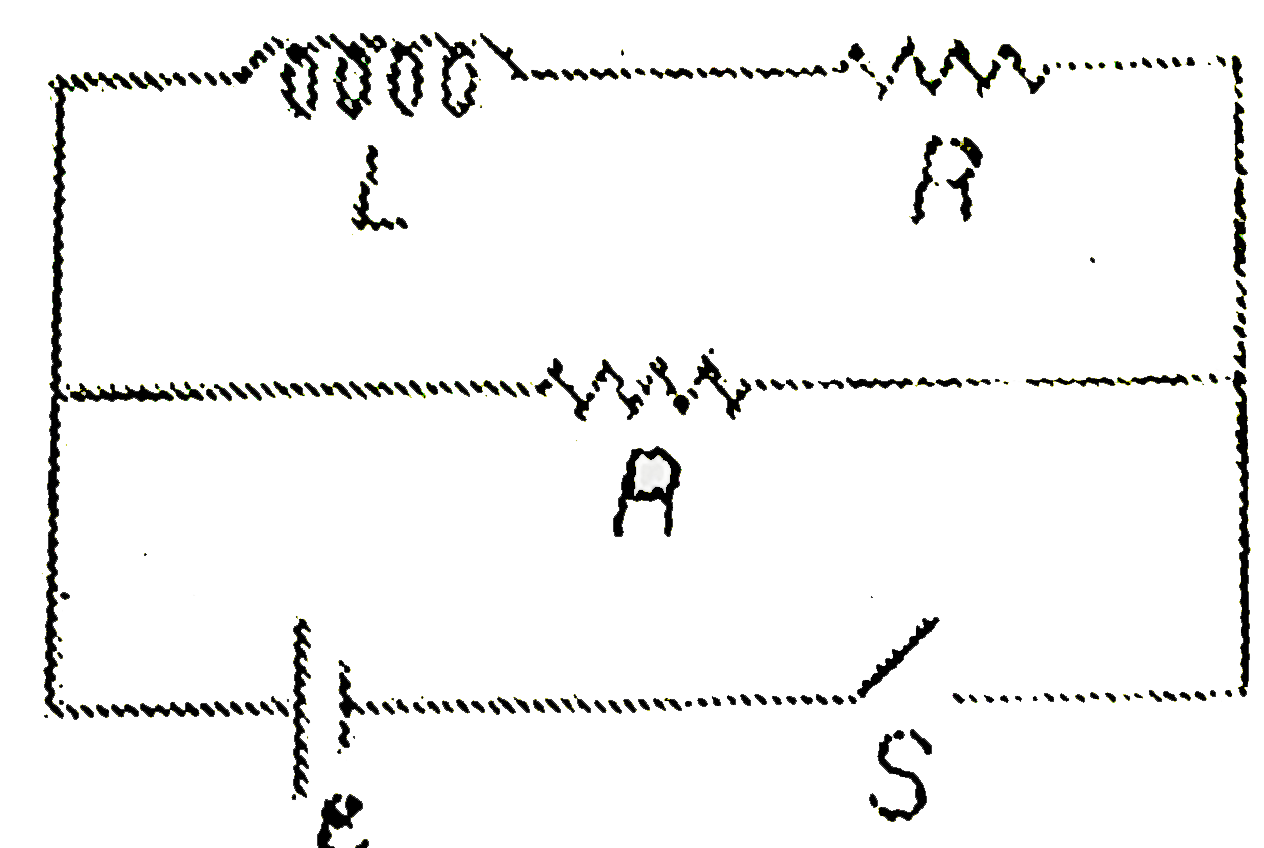
View Solution
